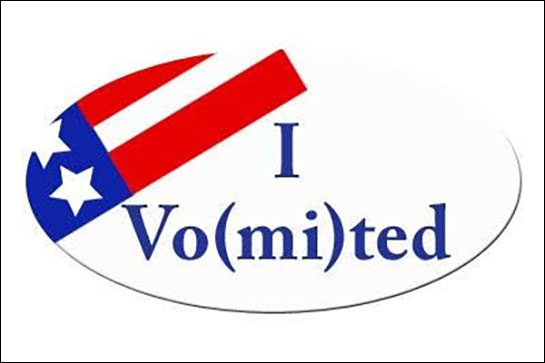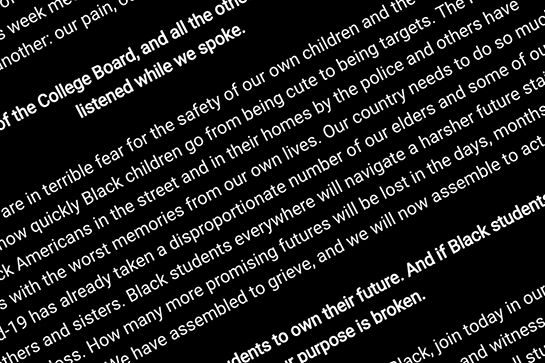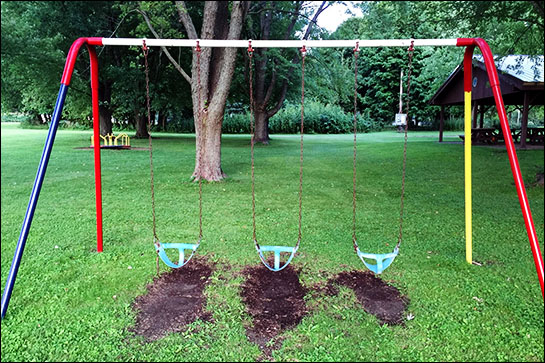
Note from Penelope: This is a guest post of sorts. I asked Whitney to annotate one of my blog posts because I want to better understand the white privilege on my blog. I also thought this would be a way to share with you how much I learn from conversations I have had with Whitney leading up to this her commentary on this post.
Note from Whitney: I am an Ivy-League educated, millennial, cis, straight Black woman. Also, I’m a teacher. That is the point-of-view from which I analyze and critique your writing, and someone with a more complex intersectional identity might have even more nuanced thoughts to offer. All the same, I’m happy to share my stream of consciousness as I read. So here I go!
I had this idea that coronavirus would be heaven for me because I’ve been working from home with my kids circling all day long for ten years. Must be nice. In my experience, the luxury of working from home with your kids is reserved primarily for White women. Because motherhood and child-rearing are generally disrespected in this country, and any sort of real honoring of that labor goes solely to White women. To live as you live, one would need enough generational and familial wealth to absorb the financial blows and instability that come with professional self-determination outside the corporate environment. Plus, one would need a work context where your employer values your contributions and seeks to protect you (even if it’s only in a benevolent sexism type of way (misogynoir means that no one is looking out for Black women in the work world (except other Black women)). You should know that systemic racism has made your lifestyle impossible for pretty much all Black Americans. You should know that the way you live is an unearned privilege, and many of your readers aren’t able to live this way. This should be my time to shine. I was looking forward to when schools closed down.HOW? How could you be thinking this when there are so many parents/guardians who won’t be able to stay home with their young kids and so many homes that are impossibly set up for home learning? The majority of families who send their kids to public schools NEED the instruction, food, child care, and mental health services they get from school. You are either out of touch and unaware of the level of need across the country, or you’re just selfish. Both are possible and characteristic of whiteness, but I’m assuming it’s the latter. Because I’ve been following you for more than a decade, and I believe you’re a good person who is just ignorant in the way that white supremacy requires white people to be. I wanted all the parents [You mean all the parents of a certain socio-economic status]to ask each other: How are you coping????
Finally, I will get to be the parent who is on top of things. I will be the coronavirus version of the mom who packs snacks for soccer and never forgets extra water. STOP! Acknowledge your privileged perspective! And people will say: She’s incredible!!!
But my son’s SAT got canceled for this weekend. So I thought okay, fine, my son will have to take the SAT at the same time he takes AP tests which only bad-planning families do, but fine, we can handle it. I call the College Board to reschedule before the rest of the world does. So white/individualistic. Instead of worrying about and advocating for the collective (i.e. all the kids applying to college who will be disadvantaged by this situation), you’re using your power to aggressively protect just your own kid. FYI, currently in this annotation process, I’m starting to feel like a judgmental, self-righteous bitch. But I’m going to keep going because hopefully, it will be worth it. I tell them they are delusional to be offering kids the April 3 test date. I suggest at-home tests that come with a camera to catch cheating.
The College Board person is pissed and snips at me.
Fortunately, I gave a fake name, so I still have hope of being the coronavirus mom of the year.
I was excited that I already have great tutors lined up. You’re an asshole for being excited about this because you’re basically excited that you have an unfair advantage… I can’t help but apologize – you’re an asshole for this, but I still love you. Me thinking that you’re an asshole in the context of this one sentence doesn’t mean that I think you’re a bad person. I mean, you’re human and we’re all assholes in our own way. Don’t feel bad or offended, just do better… Isn’t it so telling how I’m so apologetic in these comments?? I was excited to casually explain to other parents that good tutors are hard to find and we found self-paced online learning to be totally inefficient. But I forgot to take into account that all our tutors work in hospitals and they are about to start working 10-million-hour shifts.
The only reason I get any work done while we homeschool is that I don’t homeschool. Right. Your version of homeschooling is paying people to do it for you. So we can’t get rid of all the tutors. The tutor for SAT writing is a consultant who can’t travel. But I have no faith that there will be another SAT before college applications are due this fall. So we do what I have found works best: stick with a tutor you love and have your kid and the tutor find a topic they want to study together. The topic doesn’t matter nearly as much as the synergy between the two people. What a beautiful luxury. Your kids get a schooling experience that is tailored to their individual growth. They get to thrive through academic learning. School in America has nothing to do with such pursuits; instead, it’s more about acculturation to white supremacy. I’m so sad that every child doesn’t have access to the type of schooling you’ve described.
My younger son practices cello all day, with scattered breaks for piano, music theory and texting to other kids who play music all day. So self-isolation should be really easy for him — musicians practically choose this as a way of life. But my son has a concussion from a car crash that happened six weeks ago which I did not write about because the lawyer said not to. Anyway, my son’s going crazy from boredom.
He tells me he’s bored like it’s my fault.
I tell him boring people are bored, which is what I used to tell my kids when they were tiny homeschoolers learning to identify their own interests. Learning to identify their own interests?? Do you know how much of a luxury this is? Do you know how many Black people die without ever coming close to being able to experience this? I’m not even talking about older Black people. Black millennials are so busy figuring out how to make money and catch up on the 400 hundred-year head-start white folks have (which, by the way, is a fool’s errand given the way our country is set up) that they don’t have the bandwidth to learn to identify their own interests. Seriously, any Black person nurturing their own interests is a revolutionary. I was going to say that the same is true for Black people your kids’ age, but I can’t afford to be that pessimistic.
He’s had enough of my homeschool pontificating. He says, “Mom, do you think it’s true that boring kids are a result of boring parents?” Ha! This is the sort of content I love to see in your blog. Your kids are very endearing. Thanks for sharing their gems with us.
We play Monopoly. I hate Monopoly because all those houses and hotels just beg the person losing to flick the board in a way that launches all those little pieces into flight. AND it’s a stupid, racist, classist game. But let me stop. I’m just being petty now. Let me chill out. I add my own rules to make the game go faster, like no pot of money in the middle. I make hazelnut high-rises worth twice as much as hotels. The kids are offended that I would use our coronavirus food supply for a game. So I drink Pinot Noir each time I pass go because the alcohol supply is my own. Love. But that’s just because in this regard, I’m as privileged as you.
Dinner is four cheeseless takeout pizzas because I can’t decide if takeout is risky and the boys can’t decide if one pizza each is enough.
One pizza each is not enough. But still, each kid gives me their best slice, which is touching. I nibble on crust wishing for teenage metabolism. Same. But we should stop feeling like this because it’s white supremacist, misogynist bullshit. Our bodies are good no matter how they look. There’s no reason for us to fear eating pizza for dinner sometimes or to envy the metabolisms and bodies of teenagers as grown-ass women. Did you know that fatphobia is just a facet of white supremacy? Look it up. Educate and free yourself, sis! The boys are quiet when they eat. And the streets of Boston are quiet now that the students have all flown home to deliver coronavirus from the petri-dish dorms to little houses full of old people all over the country. This is a moment in history where we will talk about how during their formative years, generation Z went from one crisis to the next.
The boys want to go to Barnes and Noble.
I tell them to forget it.
They growl.
“We have 400 books. Amazon has 4 million books. You don’t need to go get a virus from people waiting in line at Barnes and Noble.”
“Fine. We’re taking a walk.”
“Fine. But be careful. It’s a pandemic. Pandemic. Okay?”
“Ok boomer.”
I have come to terms with being called a boomer when I am not. But I am still getting used to searching for the generational inference the kid is making when they say ok boomer. In this case it’s because kids are downplaying coronavirus because it’s most dangerous to baby boomers. Younger kids refer to coronavirus as boomer remover and older kids call it the accelerator candidate — as in a candidate who makes things much worse much faster will finally get baby boomers out of power. Ugh from the mouths of babes! This probably makes me a bad person, but I lowkey hope the kids are right and that this virus makes way for actual equity and justice in a BlackPower-WomanPower-WorkerPower-QueerPower-AllPowerToThePeople type of way. (Before people complain, the majority of tweets on the topic of boomer remover are making fun of baby boomers being upset about being made fun of.)
I let the kids leave the apartment because I’m so excited to be alone. Are you aware that for so many Black people in urban areas, this is literally impossible? This isn’t a rhetorical question. I can’t actually tell whether you have any awareness of that fact. I think you actually never think of these things due to white supremacy… Anyway, I think you should know. And if you didn’t know, now you know. I know we are not supposed to be touching books that hundreds of other people touch. I imagine Barnes and Noble using Purell on the hardbacks to reassure us that shopping is safe.
I do not use my alone time to work. I clean up the dining room table because the research about neighborhoods with broken windows [You do know this is debunked antiquated, racist bullshit, right? Go take another look. Try searching broken+windows+racist] also applies to apartments with teenage leftovers. I read news about coronavirus. I decided to order more wine. I have underestimated how bad this is going to be.
The kids come home with The Communist Manifesto. Great. I really do hope they become communists. Have them read Cedric J. Robinson’s Black Marxism next. You should read it too. Barnes and Noble added a fancy cover to jack up the price to a point that would have made Marx cry.
My kids made a plan to listen to the audio version because the concussion means no reading. My older son falls asleep because, honestly, this book is no page-turner. My younger son says, “Mom, this book is so boring. You should drink every time they say bourgeoisie.”
I cancel the case of wine. It’s going to take everything in me to keep us sane through Pandemic 2020.










